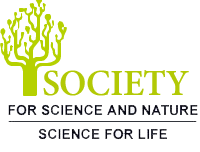Plagiarism and Ethics Statement
According to Oxford University Dictionary, plagiarism is defined as using some ones else’s ideas, words, data, or other material produced by them without acknowledgement. It is the unauthorized use or close imitation of the language and thoughts of another author and representing them as one’s own original work and Biosc Biotech Res Comm condemns all forms of plagiarism, following a very strict and vigilant policy of removing this malady. Within the academia, it is considered dishonesty or fraud and offenders are subject to academic censure.
Plagiarism can be unintentional or intentional, reproducing academic material without appropriate credit to the original authors (Citations / References). Similarly self -plagiarism is the re-use of significant, identical or near identical portions of one’s own work without citing the original work. This is also known as recycling fraud. Worst form of plagiarism is to steal the whole article from some journal and publish it under one’s own name in another journal.
Plagiarism, fabrication, unethical or redundant publication grossly violates the editorial policies of Biosc Biotech Res Comm. which follows best practice guidelines given by the International Committee of Medical Journal Editors (ICMJE) and Committee on Publication Ethics (COPE), as mentioned in the Instructions for Authors of Biosc Biotech Res Comm.
All authors submitting their MS to Biosc Biotech Res Comm must complete and sign the ethical statement form and append the Plagiarism Check Certificate of their MS along with copy-right form (www.bbrc.in) failing which, their MS will not be processed further.
The Editorial Committee of Biosc Biotech Res Comm will take appropriate action against any author found to be guilty of intentional plagiarism or exceeding the standard limits of plagiarism / similarity levels of the text matter in their MS. The name of author(s) committing plagiarism or using similar text without appropriate citations will also be disseminated to concerned authorities.
We do not tolerate plagiarism in any of our publications, and we reserve the right to check all submissions through appropriate plagiarism checking tools. Submissions containing suspected plagiarism, in whole or part, will be rejected. If plagiarism is discovered post publication, we will follow our guidance outlined in the Retractions, Corrections and Expressions of Concern section of these guidelines. We expect our readers, reviewers and editors to raise any suspicions of plagiarism, either by contacting the relevant editor or by emailing at editor@bbrc.in
- On Ethical Issues:
Animal and Human Studies
Ethical declarations in research form an integral part during the submission process of a manuscript to a journal. Bioscience Biotechnology Research Communications, requires that the experimental conditions under which animal and human assays and tests are performed are as per standard protocols used worldwide.
Authors must make it clear in writing that the procedures they used were as humane as possible and have been compiled with the guidelines for animal care of their institutions or with national / international guidelines. Studies on animals must comply with the prevailing standards of animal welfare according to Indian Council of Medical Research Guidelines or Committee for the Purpose of Control & Supervision of Experiments on Animals ( CPCSEA ) in India, and likewise following similar conditions elsewhere, (Ethical Approval Committees/ Institutional Review Board with Approval Number is necessary).For details of animal studies please see : ARRIVE and Guide for the Care and Use of Laboratory Animals.
Studies involving human subjects / patients / and also if the manuscript includes case reports / case series, authors need to provide the following: Name of the Ethical Committees /Institutional review Board, they have obtained consent from along with approval number /ID. Authors should specifically mention that the study was in accordance with the Helsinki Declaration of 1975 (Human Research: Helsinki Declaration as revised in 2013, SCARE criteria etc ).
Human Studies: Ethical Standards and Informed Consent
++For studies involving human subjects and volunteers, please indicate in the manuscript, in a section preceding the References, the following statement or an analogous statement that applies to your situation: “All procedures followed were in accordance with the ethical standards of the responsible committee on human experimentation (institutional and national) and with the Helsinki Declaration of 1975 Human research: Helsinki Declaration as revised in 2013.
Case Reports: Case Reports should be followed as per the guidelines of SCARE criteria
Informed consent should be obtained from all patients for being included in the study.” If any identifying information about participants is included in the article, the following sentence should also be included: “Additional informed consent was obtained from all individuals for whom identifying information is included in this article.” If you have not included or cannot include this statement in your manuscript, please provide the reason or an alternative statement here and in the manuscript.
- Disclosure of Interest
Authors must provide details of any financial or personal relationships that might bias the work being submitted. In a section of text preceding the References, please provide relevant information for each author(s) with regard to any conflicts of interest. All submissions must include disclosure of all relationships that could be viewed as presenting a potential conflict of interest.
- Acknowledgement of sources:
Proper acknowledgement of the work of others must always be given. Funding acknowledgement must be properly made with grant details, number etc.
Data access and retention: Authors may be asked to provide the raw data in connection with a paper for editorial review, and should be prepared to provide public access to such data.
